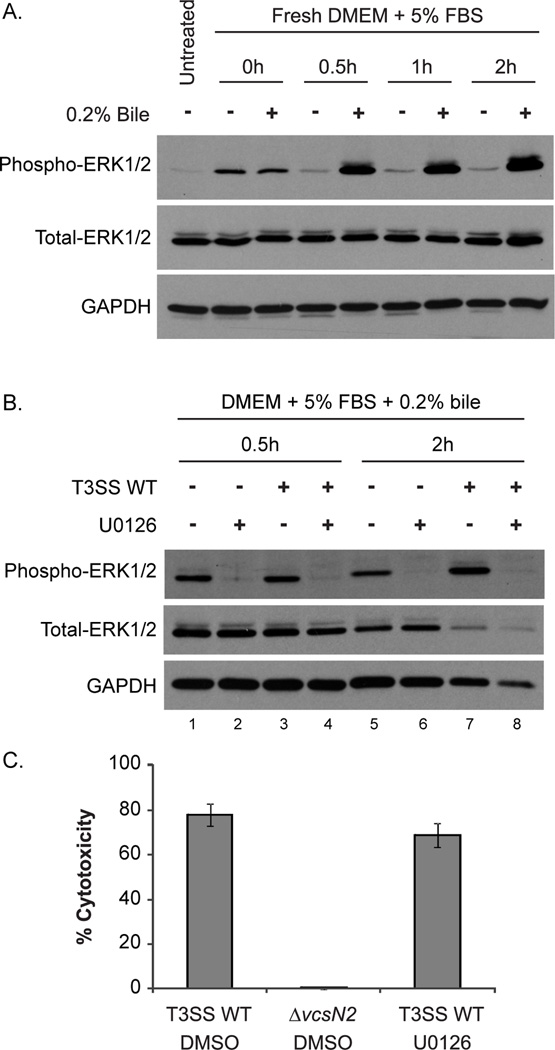Figure 4.
(A) Bile induces Caco2-BBE ERK1/2 phosphorylation. Caco2-BBE cells were grown for 48h to 80% confluence and protein lysates were harvested from one sample (untreated). Remaining samples were washed with PBS and supplied with fresh DMEM containing 5% FBS with or without 0.2% bile. Protein lysates were harvested 0.5h, 1h, or 2h after media change and probed with antibodies against phosphorylated ERK1/2, total ERK1/2, and GAPDH. The experiment was repeated twice with similar results. (B) U0126 inhibits bile dependent ERK phosphorylation. Caco2-BBE cells were grown as in (A) and were then treated with 10µM U0126 or DMSO in DMEM containing 5% FBS for 1h. Media was removed and replaced with identical medium containing 0.2% bile. Cells were co-cultured with AM-19226 T3SS WT (MOI ~10) grown overnight in LB or were mock infected. Protein lysates were harvested 0.5h or 2h after media change and probed with antibodies against the indicated proteins. The experiment was repeated once with similar results. (C) Blocking ERK1/2 phosphorylation does not inhibit AM-19226 mediated Caco2-BBE cytotoxicity. Caco2-BBE cells were treated with 10µM U0126 or DMSO in DMEM containing 5% FBS for 1h. Media was removed and replaced with identical medium containing 0.2% bile. Caco2-BBE cells were infected with AM-19226 T3SS WT or ΔvcsN2 strains grown overnight in LB medium at an MOI of ~10. After 3h of co-culture, percent cytotoxicity was determined by measuring LDH release in the supernatant. Data shown represents one experiment using five independent colonies per strain. The experiment was repeated once and yielded similar results.

